
Do you have what you need to make your garden grow?


Garden Center
Store Hours
Mon-Sat:
6:00am - 10:00pm
Sun:
8:00am - 8:00pm
Curbside:
09:00am - 6:00pm
Location
Popular at Your Garden Center
Summer Popular Garden Supplies and More
Explore June Live Plants
Garden Project Calculators
;Resize=(703,395.44))
Grass Seed Calculator
When you're ready to seed your lawn, our calculator helps you estimate the amount of grass seed you'll need to get the job done.
;Resize=(703,395.44))
Mulch Calculator
Enter your preferred material, the square footage and mulch depth of the coverage space for accurate results.
;Resize=(703,395.44))
Fencing Calculator
We'll calculate the amount of fencing you should purchase based on your property needs.
Shop Outdoor and Garden Brands
Frequently Asked Questions About Gardening
How do I know what planting zone I'm in?
Check the USDA planting zone map, as planting zones have changed slightly over the years. Zones with higher numbers can plant earlier in the year. Choose plants that are meant for your zone and increase your odds of gardening success.
Can I just put seeds in the ground?
If the soil isn't frozen or cold, consider planting your veggie, fruit, or flower seeds directly into your garden. This is called the "direct sow" method. Plant after the threat of frost is gone for the season, as sprouts and seedlings can't weather those conditions. You can also start your seeds indoors if you'd like. Consult your seed package for when and how to sow seeds.
How do I plant seeds?
Follow the instructions on your seed packet. It'll tell you when to start them indoors and when to direct sow. Generally, you'll add three to five seeds per planting hole, then press them into the soil as directed. Mark where you planted them with a toothpick, twig, or flag so you don't think they're weeds later.
Do I have to harden off my seedlings before planting them outside?
Yes, if you raised plants indoors from seeds in your own plant nursery, harden them first before you transplant them. Hardening is the process of getting them used to the great outdoors and sun, rain, and temperature swings. It slows their growth until they're strong and ready to take off during a spring warm front. Hardening also makes your plants more resilient to a sudden cold snap.
How do I plant a transplant or baby plant?
Squeeze the plastic around the plant to loosen the soil. Gently coax your transplant and the surrounding clod of dirt out into the palm of your hand, then place it into the hole you dug for it. Make sure the top of your transplant's soil is even with the garden soil, and carefully press the earth into place. Avoid mounding a volcano of dirt around your plant, and don't tamp down the ground too tightly. Your plant baby needs to breathe.
What are seed tapes?
If you're dealing with extremely tiny seeds or want more guidance in planting, consider seed tapes. They're biodegradable pieces of paper with tiny seeds affixed at regular intervals. Just bury the tape and water as directed. If all goes well, your perfectly spaced sprouts will pop up soon.
Garden Project Ideas
The Home Depot Garden Center at Inverness
Celebrate Springtime Gardening
On beautiful spring days, tidy the yard before everything blooms in earnest. Plan your garden to make the most of your time and space. Don't forget to clean the shed and sweep out the gazebo in preparation for spring, too. No matter which plants you need and what outdoor projects you choose to tackle, search for your local plant nursery and find that The Home Depot Inverness Garden Center can help you enjoy your spring activities to the fullest.
Plant Hardiness Zones Explained
The first thing to know when planting spring flowers, vegetables, and other seeds is your planting zone. Every location in the U.S. and its territories is sorted by climate. Find your zone on the USDA growing zone map and learn when to plant seeds.
For example, you could plant bell pepper seedlings outdoors in mid-March in Zone 10, but not until the end of May in Zone 4. For best results, choose plants in your zone number or less. In other words, a Zone 7 garden can support plants listed as Zones 1–7. The timeframe to direct sow outdoors in your garden is often around a month later than the indoor start date. Read your seed packet for details. If you start seeds later than recommended, it's not ideal, but it will likely even out as time passes.
Gardening in Your Growing Zone
The Mid-South is in Zones 7–9, with coastal regions being warmest and the zone number decreasing to an 8, then a 7 as you go up in elevation to the foothills of the Georgia mountains. Just check your planting zone, then consult the seed packet for the most accurate instructions for each plant. If you know you're in a micro-climate near a mountain, valley, or lake, zoom in on the USDA planting map for exact details down to street level.
In balmy Zone 9 on the coast, you can begin planning and planting indoors in January if you'd like. Zones 8 and 7 generally have a slightly later recommendation for indoor starts. Cruciferous veggies and garden favorites, like cucumbers, peppers, and tomatoes, all do well when started inside your home. Greens like spinach, artichokes, and fragrant herbs, including parsley, basil, and oregano, also don't mind an early beginning. You can sow flower seeds and watch them mature under the grow lights, too. Whatever you choose to grow, tend them carefully and transplant them when the threat of frost is gone for the season.
Start Seeds Indoors
Save money when you grow your garden from seeds by starting them indoors in your own plant nursery. We've got all the seed starter supplies you'll need. Make sure you have a warm and sunny spot that gets at least 12 hours of light. Then you have everything you need to try growing seeds. Early spring light isn't usually strong enough, so we recommend extra lighting to keep those seeds warm enough to germinate.
Measure your finger to use it as a ruler. In general, you'll plant 3–5 seeds, then press them into the soil to the depth you need with your finger. Mark where you planted the seeds with a toothpick or plant tag. Otherwise, it'll be a surprise when the sprouts push out of the soil.
Sprouts
When your seeds have sprouted but aren't ready to go outside yet, you can still prepare them for outdoor life. These inch-tall micro-seedlings are fragile but resilient. Seedlings certainly don't get all this pampering in nature, so they can handle more than you think. However, don't go overboard, as your sprouts are still babies. You can even use an oscillating floor fan on low to mimic the wind and strengthen their stems.
Harden Your Seedlings
When you're hardening your sprouts and gradually introducing them to the outdoors, be flexible. Keep an eye on your baby plants. Bring them inside or move them to a shady spot if they're looking rough. As always, make sure they're watered just enough, but not too much. Take wilted plants inside and give them a good drink, making sure they're strong before returning them outdoors.
Transplant Young Plants Into Their New Homes
Place your transplants in the ground, then give them a generous drink without overwatering. Surround them with mulch, marking where the plant is with a stick so you can easily find it among the grass clippings, old leaves, or straw. If your yard is regularly visited by rodents or deer, consider putting up chicken wire or other protective measures so your plants and veggies are less likely to get eaten before they thrive.
Protect Your Garden With Mulch
Finish your garden bed with mulch and compost. Compost enriches the soil so your garden can grow even better. It may help foster stronger plants that bear more flowers and fruit. Mulch controls weeds and keeps the soil moist. Compost and mulch can be purchased in-store or created at home. The next time you're looking for "mulch near me," stop by the Garden Center to get the perfect amount.
Greet the Spring
Don't miss a minute of growing season. Prepare to fertilize your lawn, plan your garden and landscaping, and browse The Home Depot nursery to find inspiration on what to plant when the weather warms. For those without lawns, consider adding artificial grass, an outdoor rug, or a pellet grill to your patio or balcony. Shop for the fertilizer, seeds, and soil you need in the aisles of your Inverness Garden Center, online, or on our mobile app. Let's get growing together.
Nearby Stores
Find Another Store
3670 Galleria Circle
Birmingham, AL 35244
7.42 mi
Mon-Sat: 6:00am - 10:00pm
Sun: 8:00am - 8:00pm
7001 Crestwood Blvd, Suite 1300
Birmingham, AL 35210
7.66 mi
Mon-Sat: 6:00am - 10:00pm
Sun: 8:00am - 8:00pm
3191 Pelham Pkwy
Pelham, AL 35124
11.63 mi
Mon-Sat: 6:00am - 10:00pm
Sun: 8:00am - 8:00pm
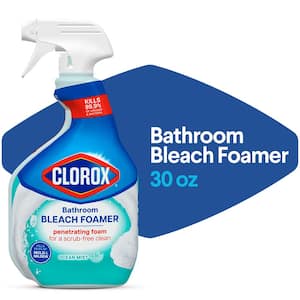
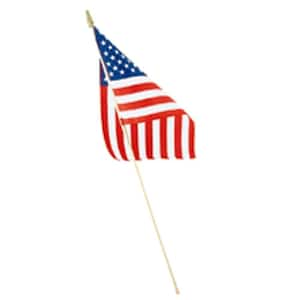
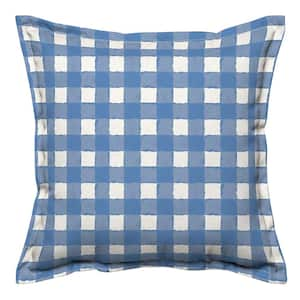
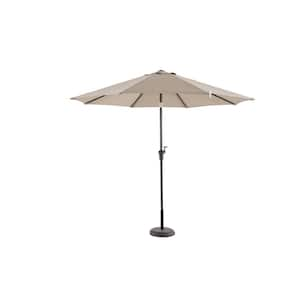
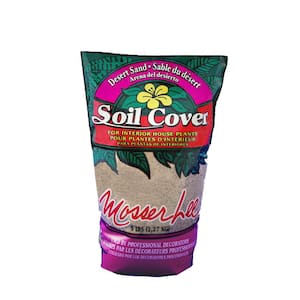
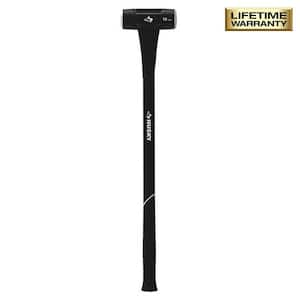
)
/17_514245_S_012_Product%20Image%20(square).jpg?im=Resize=(300,300))
)
)
)
;Resize=(300,300))
/2023_P2_Rain_Barrels_Product%20Image%20(square).jpg?im=Resize=(300,300))
)
)
)
)
;Resize=(300,300))
;Resize=(300,300))
;Resize=(300,300))
)
;Resize=(300,300))
;Resize=(300,300))
)
/12_SOIL_B_0420_Social%20media%20(square).jpg?im=Resize=(300,300))
;Resize=(300,300))
;Resize=(300,300))
;Resize=(300,300))
;Resize=(300,300))
)
;Resize=(300,300))
)
;Resize=(300,300))
;Resize=(300,300))
/18Patio_Camden_Seagrass_5pcSeating_Planters_302468736_DTL3_L_Social%20media%20(square).jpg?im=Resize=(300,300))
;Resize=(300,300))
;Resize=(300,300))
)
;Resize=(300,300))
;Resize=(300,300))
;Resize=(300,300))
;Resize=(300,300))
)
;Resize=(300,300))
)
)
.jpeg?im=Crop,rect=(363.69230769230774,1.2307692307692308,958.7692307692308,958.7692307692308);Resize=(300,300))
;Resize=(300,300))
;Resize=(300,300))
)
)
;Resize=(300,300))
)
)
;Resize=(300,300))
;Resize=(300,300))
)
;Resize=(300,300))
)
)
;Resize=(300,300))
;Resize=(300,300))
)
;Resize=(300,300))
/Capello_Spring_Mum_10in_Social%20media%20(square).jpg?im=Resize=(300,300))
;Resize=(300,300))
)
)
)
)
)
;Resize=(300,300))
)
)
;Resize=(300,300))
;Resize=(300,300))
;Resize=(300,300))
)
)
;Resize=(300,300))











































